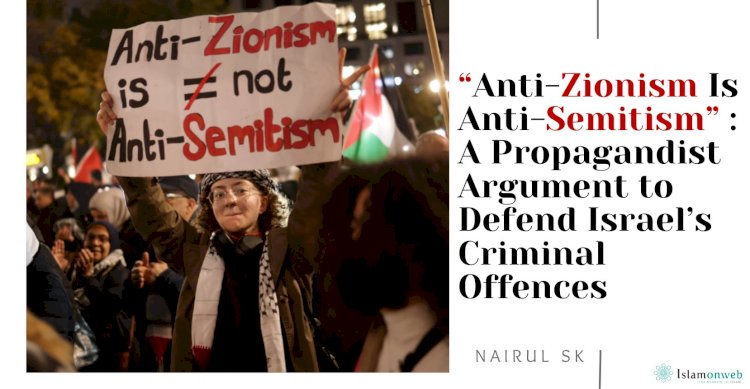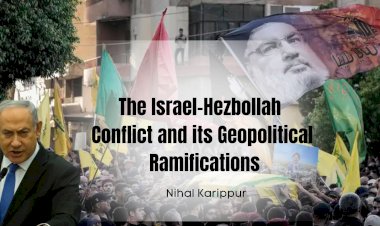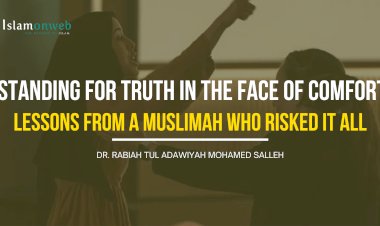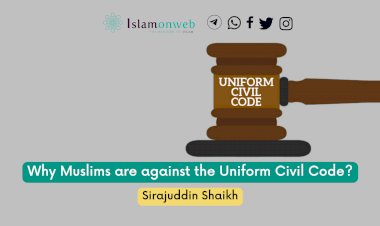“Anti-Zionism Is Anti-Semitism”: A Propagandist Argument to Defend Israel’s Criminal Offences
Any political theory, administrative ideology, or ruling doctrine—be it Military Dictatorship, Authoritarianism, Caliphate, Autocracy, or Fascism—that engages in unchecked oppression, cruelty, or expansionist policies invariably faces harsh critiques and political resistance globally. When the Nazi regime, led by Adolf Hitler, embarked on a campaign of aggression and territorial expansion, it was rightfully labelled a pariah state.[1] The regime’s actions against neighbouring countries and even major powers like the US and USSR led to global condemnation, critiques, and revolutionary debates, ultimately resulting in the formation of the Axis and Allied Powers and the outbreak of World War II. The war concluded in 1945 with the defeat of Nazi Germany and the overthrow of its fascist regime. A pariah state is characterized by its expansionist ambitions and the threat it poses to global security, especially when armed with deadly weaponry.
Comparison with Israel
Similarly, Israel, often described as a ‘Pariah State,’ overrides the global critiques, revolutionary writings, and logical debates against its heinous crimes in Gaza and Palestine, advocating for the continuation of conflict and the killing of innocent civilians through military forces, often with support from its big brother, the United States.[2] Today, there is a clear divide: on one side are global students, anti-Zionist authors, journalists, and social activists; on the other are Biden’s U.S. administration and Netanyahu’s regime in Israel. Netanyahu’s government is deeply influenced by Zionism, a political ideology that, critics argue, justifies violence against innocent civilians in Palestine. It is essential to differentiate between Semitism, which refers to the cultural and religious identity of Jewish people and their beliefs in Judaism, and Anti-Semitism, which is prejudice or hatred against Jews because of their beliefs—a form of racism that is universally condemned. Zionism, however, is a political ideology open to criticism and opposition. History has shown numerous examples of people, including freedom fighters, journalists, and revolutionaries, opposing Zionism without being anti-Semitic. Therefore, while opposing a political ideology like Zionism is legitimate, promoting racist acts like Anti-Semitism, anti-Islamism, and anti-Christianity is never acceptable. Thus, Anti-Zionism should not be conflated with Anti-Semitism.[3]
History of Zionism and Semitism
Zionism, named after Zion, emerged as a nationalist revival movement in Europe in the late 19th century. Its goal was to re-establish a Jewish state in Palestine, a region traditionally known as the Land of Israel, significant in Jewish history, religion, and identity. This movement was driven by increasing Anti-Semitism in Europe and influenced by the Haskalah, or Jewish Enlightenment. After the State of Israel was established in 1948, Zionism evolved into a political ideology aimed at maintaining and developing Israel as a Jewish state, particularly by ensuring a Jewish demographic majority. Over time, this ideology has come to be recognized as Israel's national or state ideology.[4]
Historical Context and Alternative Locations for a Jewish State
Palestine was under Ottoman rule during the late 19th and early 20th centuries. The arrival of Zionist settlers during this period is widely regarded as the catalyst for the Israeli-Palestinian conflict. In the early years of the Zionist movement, due to ethno-religious tensions between Arabs and Jews, leaders like Theodor Herzl considered alternative locations for a Jewish state, including Uganda (parts of modern-day Kenya), Argentina, Cyprus, Mesopotamia, Mozambique, and the Sinai Peninsula. However, these alternatives were ultimately rejected by top leaders of the movement. The Zionist initiative to establish a Jewish state in Palestine was seen as an ‘ingathering of exiles’ (kibbutz galuyot), aimed at ending the exoduses and persecutions that had historically afflicted Jews.[5]
Development and Recognition of Zionism
From 1897 to 1948, the primary objective of the Zionist movement was to establish a Jewish homeland in Palestine and solidify its foundation. During this period, the movement garnered recognition and support from some corners, most notably through the 1917 Balfour Declaration by the United Kingdom.[6] Since the establishment of the State of Israel in 1948, Zionism has primarily focused on advocating for Israel's security and survival. Mainstream Zionist factions generally support the idea of territorial concentration and maintaining a Jewish demographic majority in Palestine through 'aliyah' (immigration), ‘colonization’, and seeking international recognition. Supporters of Zionism view it as a 'national liberation movement' aimed at repatriating Jews, who faced historical persecution and share a religious identity to the homeland of their ancestral promised land, as documented in ancient texts. Semitism, on the other hand, bears a religious context, never bothering to possess a political context that is misunderstood by the radical Jews often.[7]
Difference Between Anti-Zionism and Anti-Semitism
Zionism, founded by Jewish journalist Theodor Herzl in 1897, is viewed by critics as an expansionist and colonialist ideology that seeks the territorial expansion of the State of Israel as a Pariah State, often at the expense of the natural rights of the Palestinian people, who have historically lived in Palestine for over 500 years. Thus, Anti-Zionism is the opposition to this ideology, which is seen as colonizing and violating the territorial and administrative rights of Palestinians. In contrast, Anti-Semitism is the propagation of hate and violence against Jewish people simply because of their religion, which is a racist stance. Opposing the political ideology of Zionism is akin to how Republicans and Democrats in the U.S. oppose each other's political ideologies; it is a political disagreement, not an expression of racial hatred.[8]
Genesis of Anti-Zionism and Anti-Semitism[9]
Formal Anti-Zionism emerged in the late 19th century in response to Theodor Herzl's 1896 proposal for a "Jewish State" in Palestine as a refuge for persecuted Jews from Europe. However, opposition to Zionism existed even before Herzl's time. The idea of Jews as a nation, rather than solely a religious community, was earlier advocated by figures like Moses Hess in 1862 and Leo Pinsker in 1882, and it faced strong resistance from European Orthodox Jews who believed that the Jewish identity should remain strictly religious and not nationalistic.[10]
The initiative of Zionism vastly divided the global Jewish community into two categories. One was regarded as the ‘Heirs of Haskalah’ (The Jewish Enlightenment) and another was the ‘Traditional Rabbinic Jews’ community.[11] Haskalah believed in rationalism, liberalism, and relativism, thus reforming the old Jewish orthodoxy hierarchy and cultural and religious lifestyle patterns and creating a reformative Jewish State in Palestine that does not depend thoroughly on religious principles. The Jewish Hebrew religious text, Torah, considers “the repatriation of the globally sprinkled Jewish people towards Palestine establishing it a Jewish state before their Messiah appears to lead the diaspora towards Jerusalem, the heartland of the State of Israel, as a sin”. [12]
Heirs of Haskalah believed in the establishment of a Jewish State in Palestine before the final rise of Messiah. Still, the Traditional Rabbinic Jews believed that Messiah was the ultimate authority to take the repatriated Jews towards Palestine and create an Israeli State. Until World War I, Jewish religious leaders across Central Europe largely viewed the Zionist movement's aspirations for Jewish nationhood as a threat, believing “it might paradoxically encourage the very antisemites who treated Jews as "aliens," the mindset Zionism sought to counteract”.[13]
When Theodor Herzl proposed a piece of land for Jews in Palestine in the court of the Ottoman Empire, Abdul Hamid 2 offered him a Jewish state anywhere in the world, under the Ottoman jurisdiction, other than Palestine and this offer marks how kind and empathetic, in the favor of Jews, the Muslim Society and Islamic Caliphates were. The entire Europe, America, and Natzis Germany, who now instigate the Jewish community against Islam and Muslims, had never poised even an iota of sympathy, let alone an offer for a Jewish State for them, instead brutally persecuted, cruelly oppressed and heinously murdered them under their inhumane jurisdiction – Holocaust is an apt instance. Therefore, historically, Muslims have not shown hatred or hostility toward Jewish people, which constitutes Anti-Semitism. In contrast, such sentiments were more prevalent in parts of Europe, including Germany and America. The position of Muslims and the broader Islamic world has primarily been one of opposition to Zionism, often misrepresented as Anti-Semitism.[14]
Liberal Israel: Misinterpretation of the Argument
But! The current Israelite radical Judaic people argue that Anti-Zionism is Anti-Semitism, which is not true. The community who argue this is the political orthodoxy of the Jewish State of Israel. Throughout the media, it is widely reported that the religious and student community of Jewish people are demonstrating massive protests against the Israelite Occupation in Palestine and Gaza in particular. This huge proportion of the Jewish population across the world, as per the political orthodox class’s interpretation, are anti-semites (anti-jew), which is nothing but the most ironic joke.
Then a reasonable question may arise: If they are antisemites, then to what and whom are they heinously opposing?
This ask is factually questionable. The author of this article confidently argues for the motion that Anti-Zionism is never Anti-Semitism, which testifies that the protestant group of Jews against the occupation are not anti-semites. But! They patriotically protest against the so-called Zionism of Theodor Herzl. They are anti-Zionist, not anti-Semitic, as Zionism is Israel’s expansionist political ideology, and a political ideology strengthens others to oppose its premises.
Now, one can easily comprehend that those proportion of global Jews and other intellectuals who propose for ‘anti-Zionist mindset’, oppose the political ideology of ‘Zionism’. Hence, the opponents of the political ideology of Zionism are never opponents of the Jewish citizens of Israel who believe in Judaism, called semitist people.[15]
Conclusion
In a recent MUNK debate in Toronto, Canada, on the topic "Anti-Zionism is Anti-Semitism," renowned journalist and political commentator Mehdi Hassan and Jewish anti-Zionist critic Gideon Levy argued against this motion. They opposed British author Douglas Murray and Anti-Semitism expert Natasha Harsdorff. During the debate, Gideon Levy concluded that "Zionism is an ideology. It is not a religion, and it is not immoral to stand against it." Meanwhile, Mehdi Hassan, CEO of the emerging media platform Zeteo, posed a provocative question: "What does it mean to tell the Palestinian people that they must either be Zionists, subscribing to the ideology of their oppressors, or be labeled as racists?"[16] [17]
How Zionism, being an ideology of oppressing 2.5 million Palestinians in Gaza, killing more than 40,000 civilians, including innocent children, fragile women, and a weak old population, could be accepted by the Palestinian authority? No chance. Israel, by committing several war crimes in neighbouring states, tries to garner empathetic support for their expansionist policy and makes an attempt to conceal their guilt of murdering innocent civilians by airing the pro-Israel argumentative propaganda ‘Anti-Zionism is Anti-Semitism’. Israel defends her Zionist policies by equating it with anti-Semitism, which, as mentioned already, is totally different from Anti-Zionism. For the final analysis, the rhetoric of ‘Anti-Zionism Is Anti-Semitism’ is nothing more than a ‘Propagandist Argument to Defend Israel’s Criminal Offenses’.[18]
End Notes:
[1] Britannica, T. Editors of Encyclopedia. "Nazism." Encyclopedia Britannica, August 20, 2024. https://www.britannica.com/event/Nazism.
[2] Bresheeth-Zabner, Haim. An Army Like No Other: How the Israel Defence Forces Made a Nation. London: Verso, 2020.
[3] Said, Edward. The Question of Palestine. New York: Vintage Books, 1992.
[4] Schneer, Jonathan. *The Balfour Declaration: The Origins of the Arab-Israeli Conflict*. New York: Random House, 2010.
[5] Proposal For a Jewish State. Wikipedia. Last Edited on 21 August 2024.
[6] Schneer, Jonathan. *The Balfour Declaration: The Origins of the Arab-Israeli Conflict*. New York: Random House, 2010.
[7] History.com Editors. "Zionism." HISTORY. Last modified August 21, 2018. A&E Television Networks. Accessed August 25, 2024. https://www.history.com/topics/middle-east/zionism
[8] Theodor Herzl. 1896. The Jewish State. Pamphlet.
[9] Laqueur, Walter. A History of Zionism. New York: Schocken Books, 2003.
[10] Sand, Shlomo. The Invention of the Jewish People. London: Verso, 2009.
[11] Laqueur, Walter. A History of Zionism. New York: Schocken Books, 2003.
[12] Fania Oz-Salzberger. 18 August 2020. Enlightenment, Haskalah, and the State of Israel. The European Legacy. Journal. <https://doi.org/10.1080/10848770.2020.1800203 > (Accessed on 25 August 2024)
[13] Fania Oz-Salzberger. 18 August 2020. Enlightenment, Haskalah, and the State of Israel. The European Legacy. Journal. <https://doi.org/10.1080/10848770.2020.1800203 > (Accessed on 25 August 2024)
[14] Khalidi, Walid. “The Jewish-Ottoman Land Company: Herzl’s Blueprint for the Colonization of Palestine.” Journal of Palestine Studies 22, no. 2 (1993): 30–47. https://doi.org/10.2307/2537267
[15] Munk Debates. "Motion: Be It Resolved, Anti-Zionism Is Antisemitism." Debate featuring Mehdi Hassan, Gideon Levy, Douglas Murray, and Natasha Housdorff. Roy Thomson Hall, Toronto, Canada, June 17, 2024.
[16] Munk Debates. "Motion: Be It Resolved, Anti-Zionism Is Antisemitism." Debate featuring Mehdi Hassan, Gideon Levy, Douglas Murray, and Natasha Housdorff. Roy Thomson Hall, Toronto, Canada, June 17, 2024.
[17] Said, Edward. The Question of Palestine. New York: Vintage Books, 1992.
[18] Munk Debates. "Motion: Be It Resolved, Anti-Zionism Is Antisemitism." Debate featuring Mehdi Hassan, Gideon Levy, Douglas Murray, and Natasha Housdorff. Roy Thomson Hall, Toronto, Canada, June 17, 2024.
References
Theodor Herzl, *The Jewish State* (1896)
Jonathan Schneer, *The Balfour Declaration: The Origins of the Arab-Israeli Conflict* (2010)
Edward Said, *The Question of Palestine* (1992)
Milton Voorst, *Zionism: The Birth and Transformation of an Ideal* (2016)
Tom Segev, *One Palestine Complete: Jews and Arabs Under the British Mandate* (2001)
Walter Laqueur, *A History of Zionism* (2003)
Ilan Pappe, *The Ethnic Cleansing of Palestine* (2007)
Avi Shlaim, *The Iron Wall: Israel and the Arab World* (2000)
Shlomo Sand, *The Invention of the Jewish People* (2009)
Haim Bresheeth-Zabner, *An Army Like No Other: How the Israel Defence Forces Made a Nation* (2020)
Oz-Salzberger, Fania. "Enlightenment, Haskalah, and the State of Israel." The European Legacy 25, no. 5 (August 18, 2020): 1-10. Retrieved 25 August 2024 https://doi.org/10.1080/10848770.2020.1800203
Munk Debates. "Motion: Be It Resolved, Anti-Zionism Is Antisemitism." Debate featuring Mehdi Hassan, Gideon Levy, Douglas Murray, and Natasha Housdorff. Roy Thomson Hall, Toronto, Canada, June 17, 2024.
About the author
Nairul SK, PG research scholar at Darul Huda Islamic University (Dept. of Islamic Economics and Finance), Kerala, India, and B.A Political Science Hons student at IGNOU.
Disclaimer
The views expressed in this article are the author’s own and do not necessarily mirror Islamonweb’s editorial stance.
























Leave A Comment